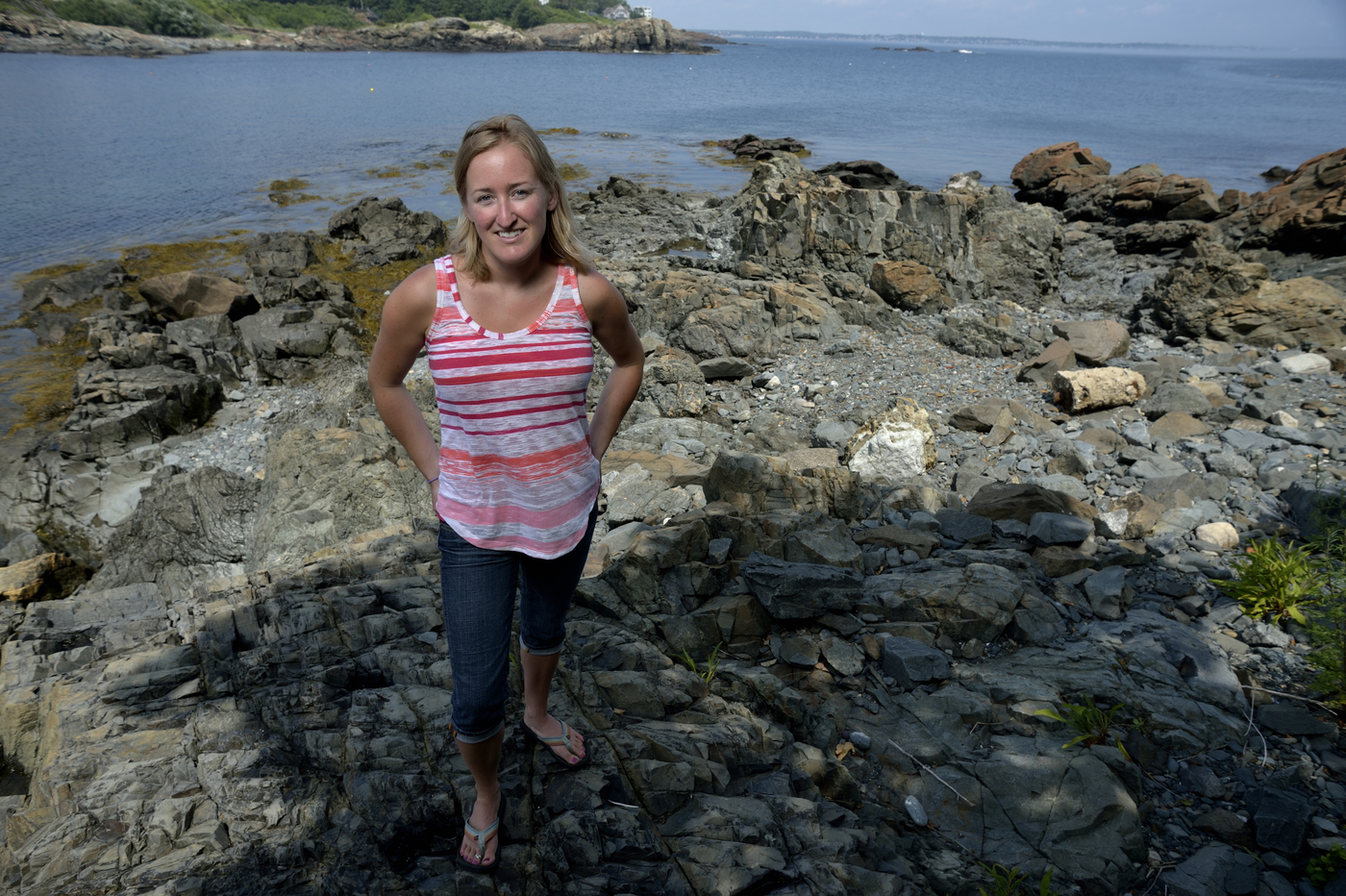Northeastern University Marine Science Center graduate student, Marissa McMahan, is among a handful of environmental scholars from across the country chosen as 2015 recipients of the Switzer Environmental Fellowship — a program of the Robert and Patricia Switzer Foundation that recognizes the achievements of environmental leaders and their potential to drive change.
McMahan studies the northern range expansion of black sea bass and how it is impacting local ecology, the food web, and fisheries productivity in the Gulf of Maine. Marissa has worked with The Lobster Conservancy, the Gulf of Maine Research Institute, and as a commercial fisher on her father’s lobster boat. Post-graduation, she will work with community groups and classrooms to understand the impacts of climate change on local ecosystems and communities. “Determining how sea bass impact local species and fisheries in newly expanded areas will be crucial to understanding the long term impacts of their northern range expansion,” said McMahan. “Communicating this research to stakeholders and community members will be equally important as climate change continues to alter marine ecosystems and the resources they provide.
McMahan is one of the 22 promising environmental leaders across the country that will be awarded $15,000 each to complete masters and doctoral degrees to advance their skills and develop their expertise to address critical environmental challenges.
Nearly $15 million in grants has been invested in Switzer Fellows over a 29-year period. The Switzer Foundation identifies, supports and nurtures emerging environmental leaders. “This year’s Switzer Fellows are innovators and are dedicated to bringing their research and academic scholarship to real world environmental issues,” says Lisa Widoff, Switzer Foundation Executive Director. “We are thrilled to see the range of schools and professional fields of study in this year’s cohort. We know they will benefit not only from our funding, but also from the leadership training and convenings we offer. This will position them for leadership in the nonprofit, government, business and academic sectors in the near future.”
Fellowships are merit-based and rigorously competitive. Candidates must be recognized for their leadership capacity by their academic institution or by environmental experts.

